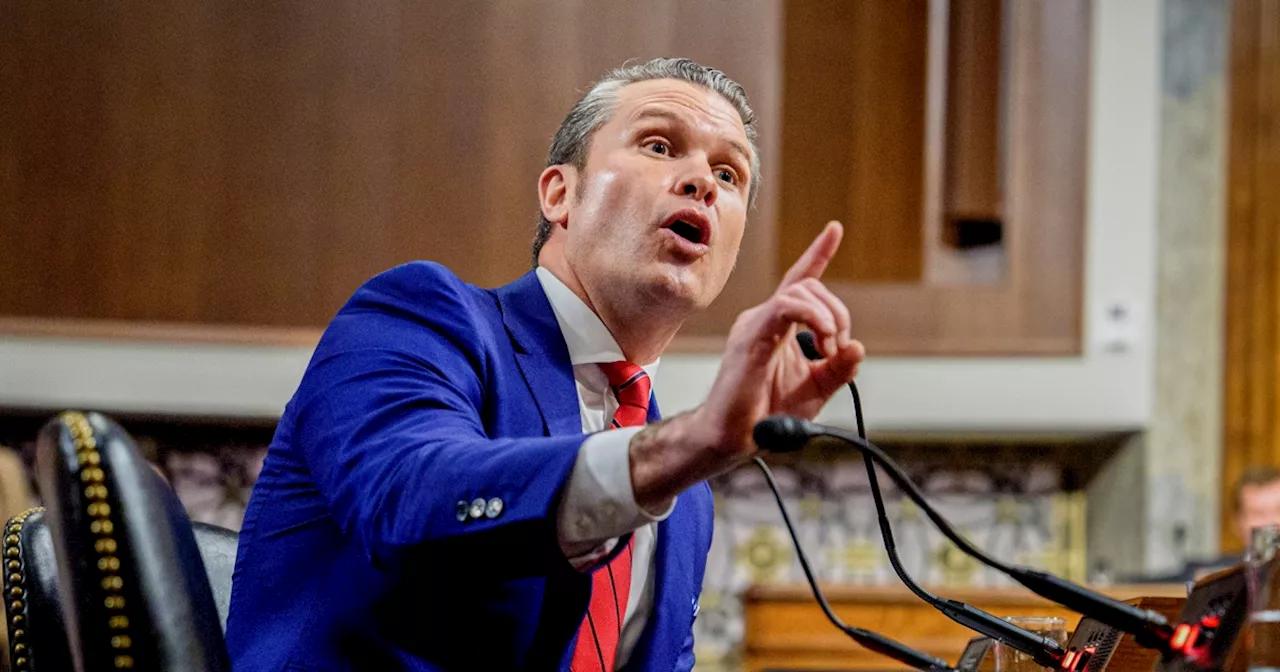The article analyzes the recent Senate confirmation hearing of Pete Hegseth for Secretary of Defense, highlighting the seeming ineffectiveness of the hearings as a vetting process and a check on presidential power. It argues that while Democrats may not be able to completely derail confirmations, they can use hearings strategically to shape public narrative and highlight discrepancies in nominees' qualifications and stances.
On Tuesday, Pete Hegseth sailed through his first Senate confirmation hearing. It was shocking, although perhaps it shouldn’t have been, to watch someone on his way to likely confirmation who has been dogged by so many moral and ethical concerns, from reports of his excessive drinking to his questionable nonprofit management to allegations about sexual misconduct. (Hegseth has denied wrongdoing and was not charged.
) It seemed that if ever there was a shaky candidate for heading an organization of more than 3 million people, it was the former Fox News host. But it didn’t shake out that way. Politico’s nightly letter was titled “The death of the Senate confirmation hearing,” stating that “today we learned only one thing: after decades of smash mouth Senate confirmation hearings, they’ve become all but useless as a vetting exercise or a check on presidential power.” A headline from The Hill read, “Democrats’ hopes of derailing Trump nominees are fading fast.” Washington newspapers had spoken; Hegseth’s future as secretary of defense was a fait accompli. Now it wasn’t a complete disaster; Democrats got some good moments in there. In perhaps the most evocative exchange of the hearing, Black Hawk helicopter pilot and Illinois Sen. Tammy Duckworth asked Hegseth to name the countries in the Association of Southeast Asian Nations (ASEAN). “I know we have allies in South Korea and Japan in AUKUS (a pact between Australia, the United Kingdom and the U.S.) with Australia,” Hegseth replied. He was not even close. “None of those three countries are in ASEAN,” Duckworth responded, adding, “I suggest you do a little homework.” Sen. Tim Kaine was able to push a line of questioning about Hegseth’s reported drinking and bad behavior, which was important. But as much as well-aimed questions helped expose Hegseth’s questionable character and eligibility for the high-stakes role, I think Democrats would do better if they would realize that the math is not on their side — there are 53 Republican senators, so these Cabinet nominees can only lose four senators, and or President-elect Donald Trump — and that lecturing the nominees about their past is not as effective as nailing them down and highlighting what they plan to do. Democrats do best when they take a page from the Mehdi Hasan playbook and nail the candidates on specifics — then follow up with more specifics. We saw some of this with the questions put to Scott Bessent on Thursday for his confirmation hearing for treasury secretary. “Yes or no, will you recommend cutting Medicaid?” Sen. Ben Ray Luján asked Bessent. When Bessent failed to deliver a satisfactory response, Luján asked the question again. Bessent stumbled through yet another nonresponse. Another promising example was when Sen. Bernie Sanders pushed Bessent on the minimum wage, forcing the investor and hedge fund manager to say he doesn’t support raising the federal rate. “You don’t think we should change the federal minimum wage of $7.25 an hour?” Sanders asked. “No, sir,” Bessent replied. Democrats may not actually be able to derail a confirmation — it’s historically fairly rare that a nominee is not confirmed, although it happens. That doesn’t mean they shouldn’t absolutely try, but they also need to reassess the value and purpose of a public hearing, and use it to their advantage. Democrats have an opportunity to shape the narrative, to explain to voters, on the record, what Trump is about to do. With all the misinformation and disinformation clouding the political ecosystem, there’s a responsibility here that shouldn’t be ignored. It can be tempting to use the hearings as a personal showcase or an opportunity to grandstand, but that doesn’t move hearts and minds or votes. We know, for example, that Hegseth is no feminist. Democratic senators pontificating on this helps no one at this point. But asking specific questions like Duckworth did potentially can, by exposing real knowledge gaps and exactly why a person is unqualified for a role. Mike Pence is already going after Robert F. Kennedy Jr. using his Advancing American Freedom platform to try and knock him out for not being anti-choice enough. Perhaps Democrats could focus on getting RFK Jr. to admit that he’s actually pro-choice. Better yet, remind Republicans that he is, in fact, a Democrat. A lot of Trump’s Cabinet nominees have figured out that they are playing to an audience of one. Florida Attorney General Pam Bondi, for example, refused to answer the question of who won the 2020 election, saying, “President Biden is the president of the United States. There was a peaceful transition of power.” When Sen. Chris Murphy pushed Sen. Marco Rubio about Trump’s international business conflicts, Rubio was careful with his response. But while nominees play to their audience of one, it’s Democrats’ responsibility to play to the audience that really matters here: the American peopl
Senate Confirmation Hearings Trump Nominees Pete Hegseth Robert F. Kennedy Jr. Democrats Republicans Campaign Finance Public Hearings
United States Latest News, United States Headlines
Similar News:You can also read news stories similar to this one that we have collected from other news sources.
 Power companies douse Los Angeles power poles with retardant to protect power grid during firesWith multiple wildfires still burning across the county, several Los Angeles power companies have started to try and get ahead of the potentially volatile and erratic flames, working to mitigate additional risks by clearing dry vegetation and protecting valuable power lines.
Power companies douse Los Angeles power poles with retardant to protect power grid during firesWith multiple wildfires still burning across the county, several Los Angeles power companies have started to try and get ahead of the potentially volatile and erratic flames, working to mitigate additional risks by clearing dry vegetation and protecting valuable power lines.
Read more »
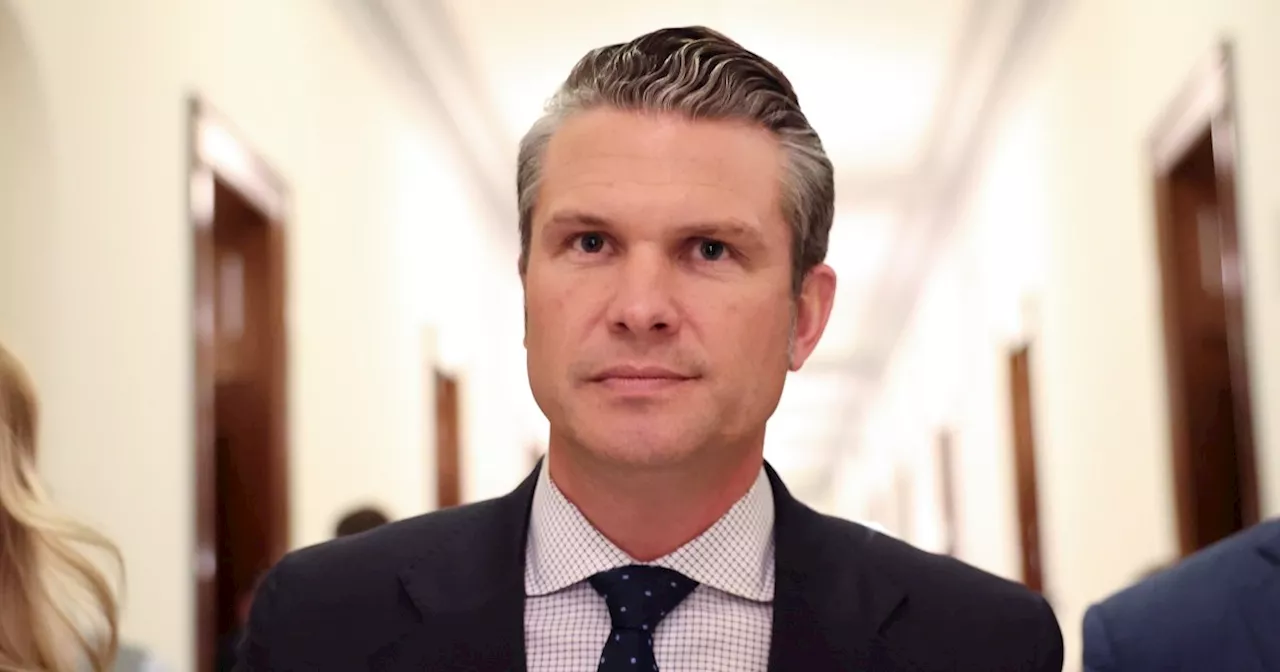 Senate confirmation hearings live updates: Pete Hegseth first Trump Cabinet pick to face Senate questionsPresident-elect Trump’s pick for secretary of defense, Pete Hegseth, is expected to be grilled during his confirmation hearing over allegations of sexual and financial misconduct and alcohol abuse. NBC News’ Ali Vitali reports on Trump’s embattled defense secretary pick.
Senate confirmation hearings live updates: Pete Hegseth first Trump Cabinet pick to face Senate questionsPresident-elect Trump’s pick for secretary of defense, Pete Hegseth, is expected to be grilled during his confirmation hearing over allegations of sexual and financial misconduct and alcohol abuse. NBC News’ Ali Vitali reports on Trump’s embattled defense secretary pick.
Read more »
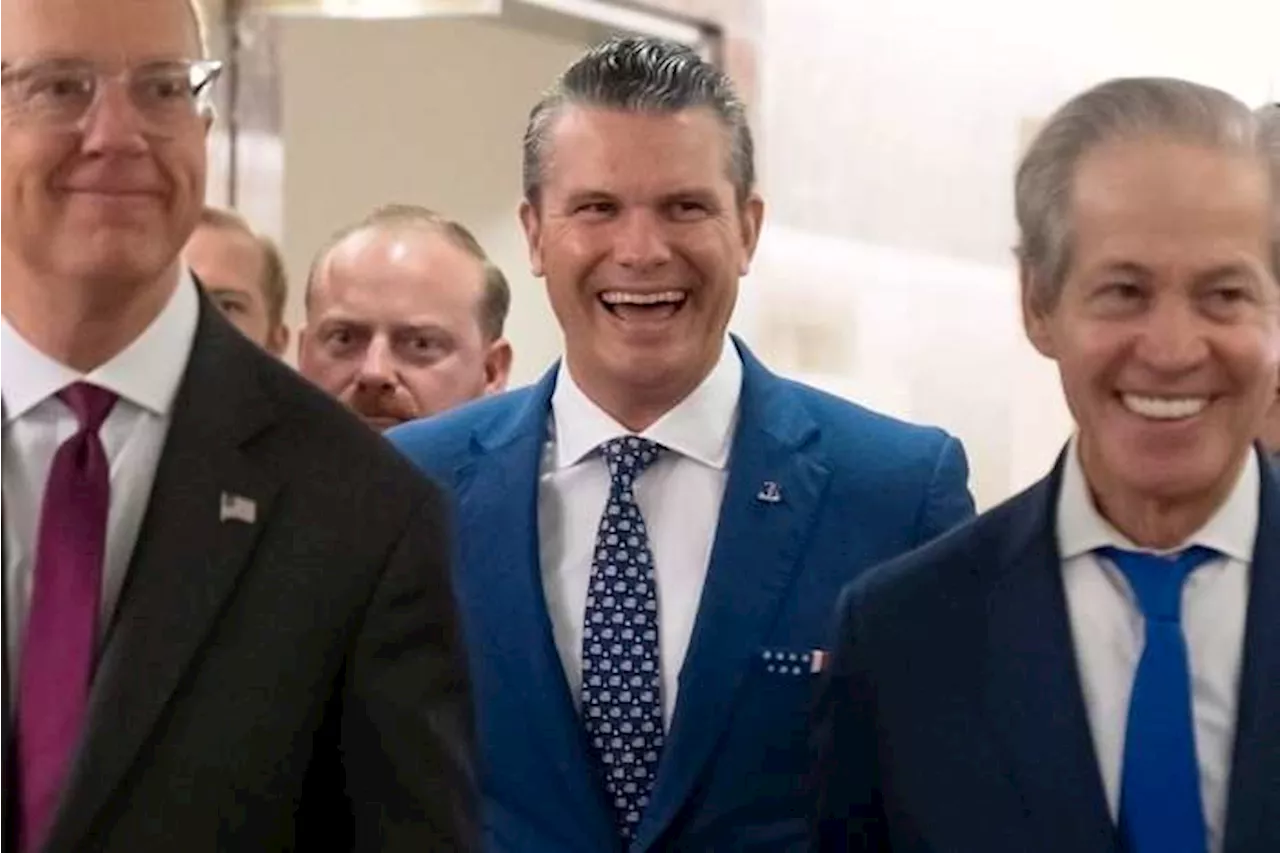 Fate of Trump's Cabinet picks unclear as Republicans prepare to take power in SenateThe fate of President-elect Donald Trump’s Cabinet is still unclear after Republican senators spent much of December carefully dodging questions.
Fate of Trump's Cabinet picks unclear as Republicans prepare to take power in SenateThe fate of President-elect Donald Trump’s Cabinet is still unclear after Republican senators spent much of December carefully dodging questions.
Read more »
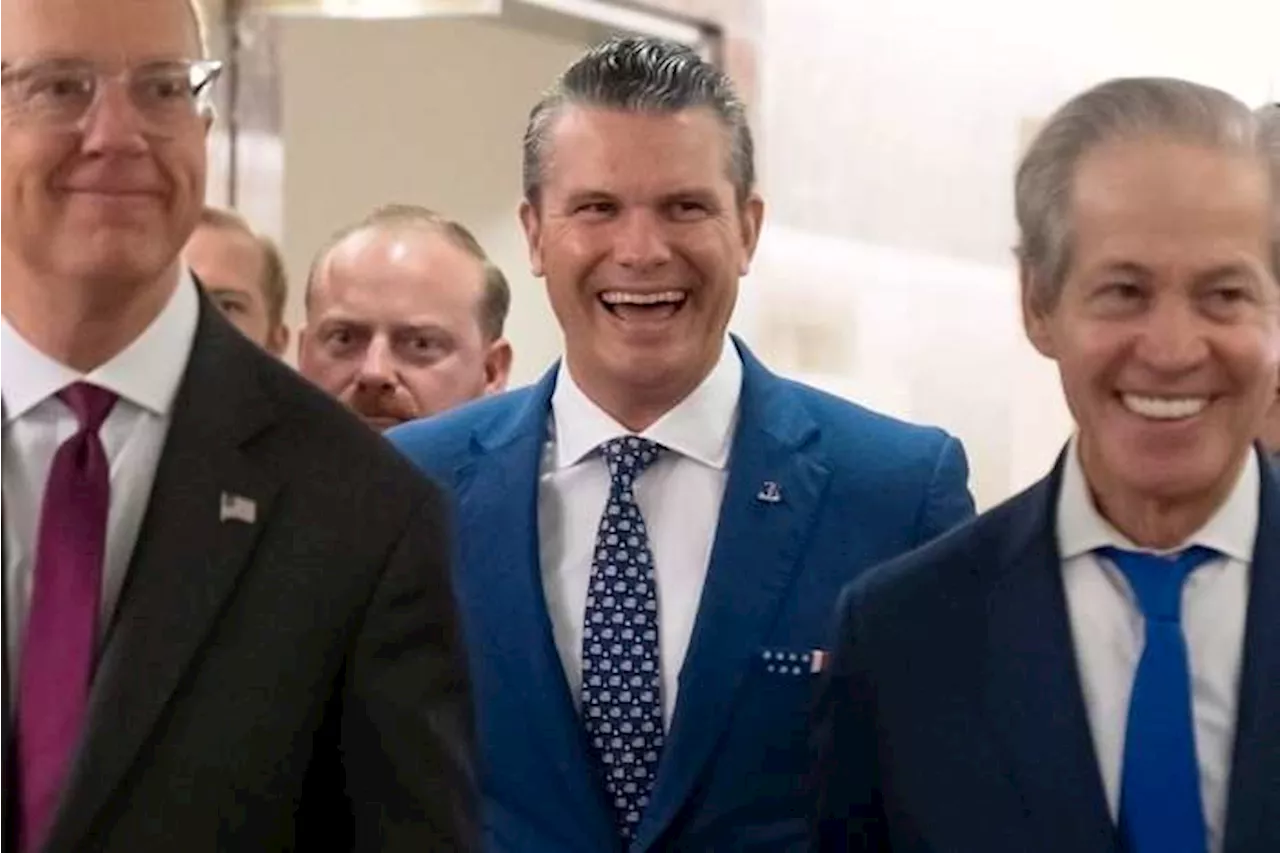 Fate of Trump's Cabinet picks unclear as Republicans prepare to take power in SenateThe fate of President-elect Donald Trump’s Cabinet is still unclear after Republican senators spent much of December carefully dodging questions.
Fate of Trump's Cabinet picks unclear as Republicans prepare to take power in SenateThe fate of President-elect Donald Trump’s Cabinet is still unclear after Republican senators spent much of December carefully dodging questions.
Read more »
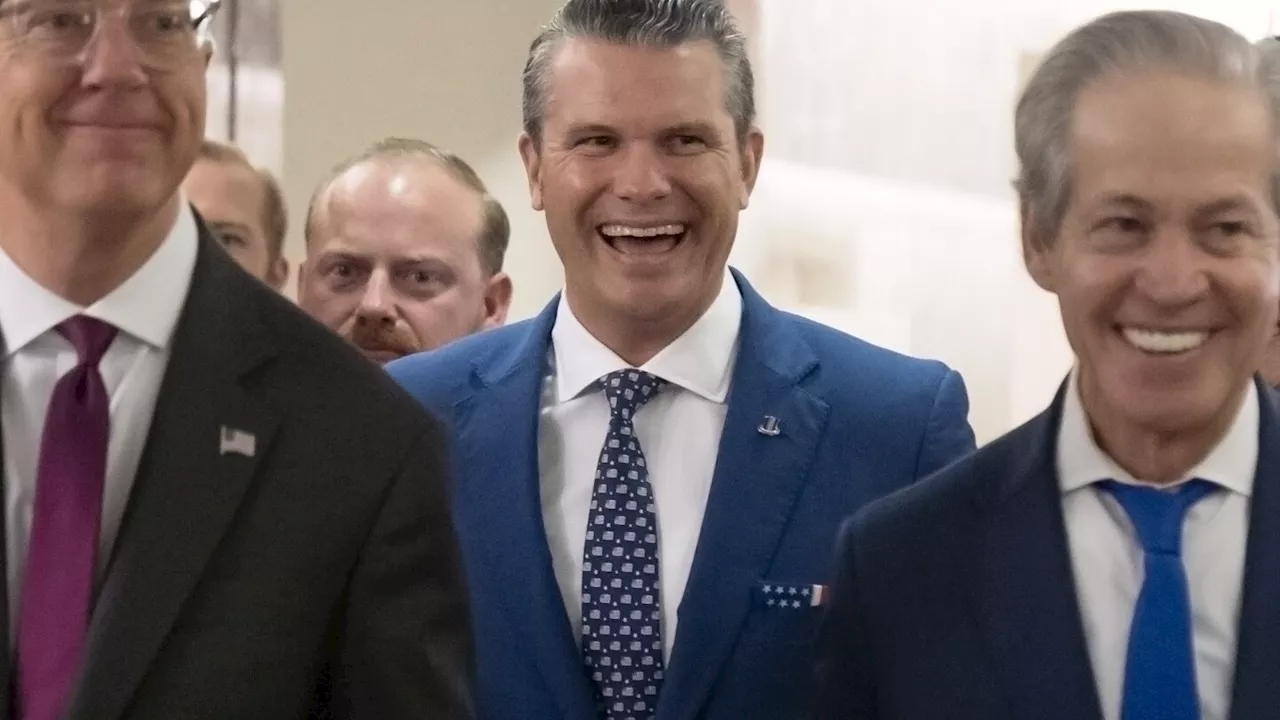 Fate of Trump's Cabinet Picks Unclear as Republicans Prepare to Take Power in SenateThe future of President-elect Donald Trump's cabinet remains uncertain as Republican senators in December have been careful to avoid questions about Robert F. Kennedy Jr.'s views on vaccines, accusations of sexual misconduct against Pete Hegseth, and Tulsi Gabbard's 2017 meeting with then-Syrian President Bashar Assad.
Fate of Trump's Cabinet Picks Unclear as Republicans Prepare to Take Power in SenateThe future of President-elect Donald Trump's cabinet remains uncertain as Republican senators in December have been careful to avoid questions about Robert F. Kennedy Jr.'s views on vaccines, accusations of sexual misconduct against Pete Hegseth, and Tulsi Gabbard's 2017 meeting with then-Syrian President Bashar Assad.
Read more »
 Senate GOP to Implement Aggressive Schedule and Curtail Leadership PowerSenate Minority Whip John Thune (R-SD) announces plans for significant changes to the Senate's operating procedures when Republicans take control in January 2025. These changes include a more aggressive work schedule with five-day weeks and limited recesses, aimed at quickly confirming President-elect Donald Trump's nominees and advancing his agenda. Additionally, Thune promises a more inclusive process that reduces leadership power and empowers individual senators.
Senate GOP to Implement Aggressive Schedule and Curtail Leadership PowerSenate Minority Whip John Thune (R-SD) announces plans for significant changes to the Senate's operating procedures when Republicans take control in January 2025. These changes include a more aggressive work schedule with five-day weeks and limited recesses, aimed at quickly confirming President-elect Donald Trump's nominees and advancing his agenda. Additionally, Thune promises a more inclusive process that reduces leadership power and empowers individual senators.
Read more »
